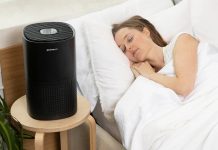In a city like Houston, where sweltering summers seem to last longer than they should and humidity often clings to every surface, a reliable air conditioning system isn’t just a convenience—it’s a necessity. Houstonians rely heavily on their HVAC systems not only for relief from heat but for maintaining daily comfort and well-being. What many homeowners overlook, however, is the deeper role that air conditioning plays inside the home. Beyond temperature control, your AC system quietly impacts your sleep quality, allergy symptoms, and the air you breathe every day.
1) How Air Conditioning Shapes Your Sleep Cycle
Your body depends on temperature cues to help regulate its internal clock. As the sun goes down, your core temperature begins to drop, signaling that it’s time to rest. But if your bedroom feels warm or stuffy, falling asleep can become a frustrating challenge. Air conditioning helps promote deeper sleep by maintaining a cool, steady environment that mirrors your body’s natural rhythm.
The ideal sleep temperature for most people falls between 60 to 67°F. When your AC system can maintain that range without sudden changes, your sleep becomes more restful and uninterrupted. Consistent airflow and humidity control also help prevent night sweats or that sticky feeling that keeps you tossing and turning.
2) Keeping Allergies in Check Year-Round
Allergens don’t take a break, especially in a place like Houston where the humid climate creates the perfect breeding ground for mold spores, dust mites, and pollen. When your system runs efficiently, it filters out airborne irritants before they can settle into your home. However, maintenance makes all the difference. Skipping necessary service appointments allows filters to clog and ducts to accumulate debris, pushing allergens right back into circulation.
That’s why homeowners often book an AC tune-up in Houston, TX, as spring approaches or right before the heat peaks. Local HVAC professionals understand the specific challenges of Houston’s climate, from ragweed surges to coastal humidity levels, and can fine-tune systems to respond accordingly. Regular tune-ups don’t just improve airflow—they help safeguard against allergy flare-ups by ensuring your system stays clean and effective, no matter the season. Taking care of your AC means taking care of your lungs, too.
3) Humidity Control for a Healthier Home
Humidity isn’t just a comfort issue—it’s a health issue. High indoor humidity can make your space feel warmer than it really is, encouraging your AC to overwork and potentially hike up your energy bill. More importantly, excess moisture fuels the growth of mold and mildew, both of which can trigger respiratory issues and worsen allergies. Air conditioners don’t just cool the air; they also remove moisture as part of the cooling process. When your system runs efficiently, it keeps indoor humidity levels in the sweet spot—usually between 30% and 50%. At these levels, your home feels fresher, smells cleaner, and resists the buildup of harmful microbes.
For families with asthma sufferers or young children, this is especially important. Consistent humidity control also protects your furniture, flooring, and electronics from warping or moisture damage. By monitoring humidity and adjusting your thermostat and fan settings accordingly, you create a safer, more comfortable living environment that supports your household’s overall well-being.
4) Filtration and Indoor Air Quality
What’s floating around in your home’s air right now? If your AC system hasn’t been serviced recently or you’re using a low-grade filter, chances are you’re breathing in dust, pet dander, and even chemical particles from cleaning supplies or off-gassing furniture. Air conditioning systems equipped with high-quality filters play a critical role in maintaining clean indoor air. They trap pollutants that could otherwise circulate throughout your living space, reducing your risk of allergies, sinus irritation, or long-term respiratory issues.
Some systems even integrate advanced filtration options like HEPA filters or UV lights that neutralize bacteria and viruses. But filtration only works when filters are changed regularly. Letting them clog with debris causes your system to work harder, and eventually, it just recycles the same dirty air. Make it a habit to check your filters monthly and replace them based on manufacturer guidelines. Clean air doesn’t just smell better—it helps you breathe easier, focus better, and feel better all around.
5) Creating Temperature Consistency Across Rooms
Ever noticed how one room in your house feels like a freezer while another feels like a sauna? Inconsistent temperatures create discomfort and often signal deeper issues with your HVAC system, like poor duct design, clogged vents, or inadequate insulation. Uneven cooling forces your AC to run longer than necessary, wasting energy and placing stress on the system. It also leads to restless sleep, especially if bedrooms get less airflow than common areas.
A balanced temperature across your home improves both comfort and efficiency. Start by checking for leaks or blockages in your vents, and make sure furniture isn’t obstructing airflow. Zoning systems or smart thermostats can also help maintain a more consistent climate by adjusting settings room by room. When every space in your home gets the cooling it needs, your AC system performs better and lasts longer. Plus, you’ll enjoy a more predictable, peaceful environment—day or night.
6) Reduced Noise Means Better Rest
Imagine trying to drift off to sleep with the constant hum, click, or rattle of an old air conditioning unit in the background. Noise pollution inside the home, especially at night, can disrupt sleep cycles and leave you feeling groggy the next day. Modern AC systems, when properly installed and maintained, operate quietly and efficiently. They provide a consistent cooling experience without sudden blasts of cold air or clunky start-ups. A quiet system reduces nighttime disturbances and helps maintain a calm, peaceful atmosphere that’s ideal for rest.
To minimize indoor noise, make sure your unit has proper insulation around the ducts and that all parts are clean and secure. For older units, even simple fixes like replacing worn-out fan belts or tightening loose parts can significantly cut down on disruptive noise. A good night’s sleep often starts with a silent room—and that’s where a quiet AC system proves its value.
Air conditioning does far more than cool your home—it quietly shapes the way you sleep, breathe, and feel every single day. From controlling humidity and filtering allergens to promoting quiet rest and preventing bacteria buildup, your AC system serves as a pillar of whole-home comfort. In areas like Houston, where heat and humidity are constant challenges, maintaining a well-functioning system through regular tune-ups isn’t optional—it’s essential. By investing in your air conditioning’s performance and understanding its broader impact, you can create a cleaner, healthier, and more peaceful home. Comfort isn’t just a luxury—it’s part of a lifestyle that supports better living from the inside out.




